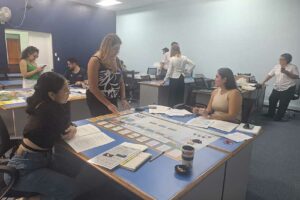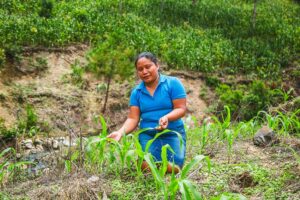Guatemala seeks to continue generating and making information available to combat malnutrition
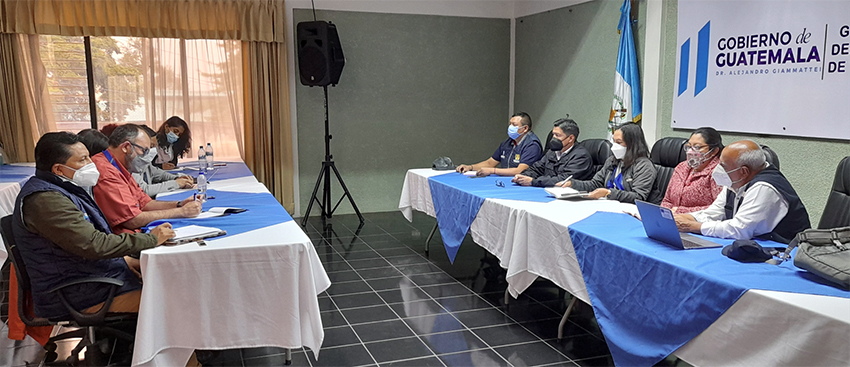
- CATIE, SESAN and the European Union shared with national and local authorities to develop a smooth transition between the first and second phase of the National Information Platform on Nutrition (PiNN) project.
June 10, 2022. Within the framework of the global initiative National Information Platforms on Nutrition (NIPN), in Guatemala, CATIE (Tropical Agricultural Research and Higher Education Center) and the Secretariat of Food and Nutrition Security (SESAN, Its Spanish acronym), with the support of the Delegation of the European Union in Guatemala (DUEG), coordinated a series of meetings with national and local government authorities to ensure a smooth transition between the first and second phases of the National Nutrition Information Platform (PiNN) project, which seeks to strengthen evidence-based nutrition governance.
Eduardo Say, coordinator of the PiNN project, indicated that the activity made it possible to identify lessons learned, define national priorities and needs, recapitulate key operational concepts, define roles and responsibilities among partners in the countries and at the global level, and identify the modalities for regular communication to influence decision-makers.
Representing the national government were Guillermo Castillo, Vice President of Guatemala and President of the National Council for Food and Nutritional Security (CONASAN, its Spanish acronym), as well as officials from the Ministry of Agriculture, Livestock and Food (MAGA, its Spanish acronym), the Ministry of Social Development (MIDES, its Spanish acronym) and the Ministry of Public Health (MSPAS, its Spanish acronym). Also participating at the local level were representatives of the Departmental Commission for Food and Nutritional Security (CODESAN, its Spanish acronym) of Totonicapán and the Municipal Commission for Food and Nutritional Security with an Emphasis on the Protection of Children and Adolescents (COMUSANNA, its Spanish acronym) of Momostenango.
In the meeting with the Vice President of Guatemala, Say reiterated that CATIE has made a commitment through the PiNN project with the government to strengthen the departmental (SIDESAN, its Spanish acronym) and municipal (SIMSAN, its Spanish acronym) food and nutrition security information systems, specifically in the 10 departments prioritized in the Great Crusade for Nutrition as a government strategy. In addition, Say reported on the progress made in scaling up these systems.
For his part, Vice President Castillano stated that all efforts are necessary in the area of food security and that the private sector and international cooperation are strongly supporting this effort, which is why CONASAN, the committee he chairs, is working to define the necessary resources for the implementation of the Food Security Plan.
Marco Antonio Monzón, SESAN's monitoring director, indicated that it is important for information to be decentralized in order to have updated data; he added that, with the support of the PiNN project, the systems will have updated information. For Monzón, another action that has strengthened the work of the institutions is the creation of tools that help to collect information easily and immediately, as a mechanism to concentrate institutional data in a single space to enable decision making.
In addition, Guatemala now also has C4N, a technical assistance service of the European Union, contracted by GIZ, which has international experts in nutrition, which it makes available to the countries.
In a meeting with local authorities of Momostenango, Claudia Barillas, representative of DUEG, recognized the importance of data for decision making and highlighted the openness of the authorities to accept the municipal information systems (SIMSAN, its Spanish acronym). "You are an example and motivation for other mayors, because you took on the challenge," Barillas emphasized.
Laura Cristales, an official of the Food and Nutritional Security Program (PROSAN) of the Ministry of Public Health and Social Assistance (MSPAS), commented that in the first phase of the PiNN project important work was done in Momostenango and Totonicapán, a process that will be the basis for work in this second phase. "We are currently working with the technical support of the program to make better use of the administrative data, for example, in the area of growth monitoring, which is very important information for decision making at the local level," added Cristales.
Kevin Carías, Director of Information Systems of the Ministry of Social Development (MIDES), said that in the first phase of the PiNN project, in the empowerment of municipal information, the need to support local authorities in decision making became evident, seeking to respond to national strategies from the local level.
Rafael López, Director of Geographic Information and Strategic Geographic Management (DIGGER, its Spanish acronym) of MAGA, applauded the creation of the systems and expressed his interest in supporting the local level so that information on the determination of vegetation cover and land use, soil studies and risk management complete these processes and can support municipal governments in making decisions in anticipation of climate.
The municipal mayor of Momostenango, Santiago Vicente, in his capacity as president of COMUSANNA, thanked for the support provided to his municipality. "With SIMSAN we started to walk towards the strengthening of the actions that we had to coordinate together institutions, civil society and private sector; we found the horizon for what had to be done in the food security issue. Our experience with these platforms has allowed Momostenango to be known internationally and nationally and to lead this effort that thanks to SESAN, CATIE and the financial support of the European Union we have achieved," said Vicente. In turn, the Mayor of Momostenango called on the representatives of the institutions present to strengthen COMUSANNA as a space for decision-making in favor of the population.
Mónica Ramos, nutritionist of the Health Area of the Department of Totonicapán, valued the support that the PiNN project has given since its first phase and continues to give to the health area and, in general, to the Departmental Council for Food Security (CODESAN) in the generation of tools that facilitate the analysis of data for decision making.
Finally, Julio Lopez, CATIE representative in Guatemala, recalled that PiNN partners work under a common results framework focused on strengthening technical capacity to provide relevant nutritional information and analysis; increasing demand for PiNN products by decision-makers; and strengthening national ownership of PiNN. "The project steps aim to support public sector institutions in strengthening their information systems and the capacity of their technicians to analyze nutrition data to better guide decisions to prevent all forms of malnutrition," said Lopez.
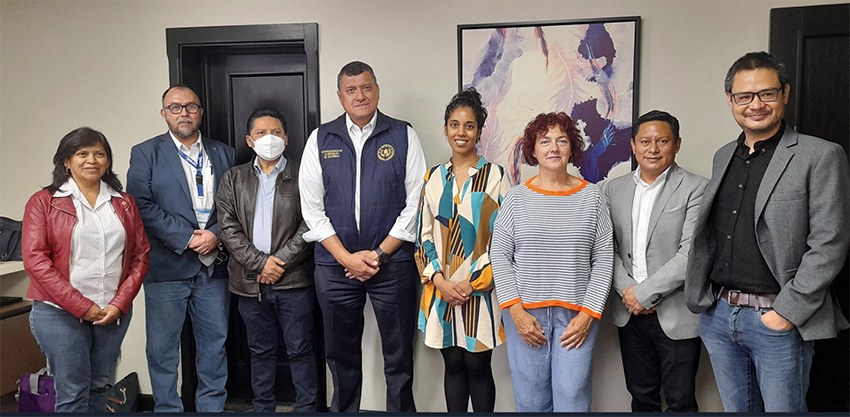
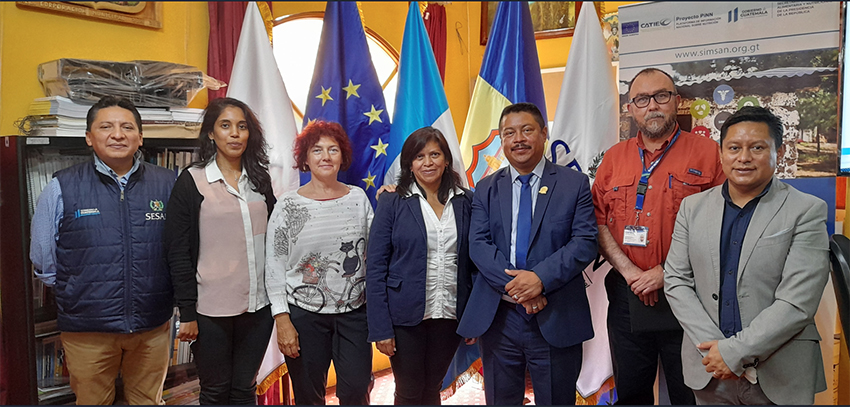
Tag:desnutrición, Guatemala, información

